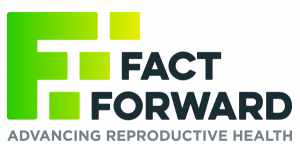Training
Periods and Wet Dreams: Teaching Puberty in Elementary School
Puberty - a time of great, and sometimes daunting, change for both young people and the adults in their lives. This interactive, full-day training will provide educators, school nurses, youth-serving professionals, and other caring adults with skills and strategies for teaching pubescent youth about their changing bodies, emotional growth, and navigating the path to adulthood in a way that is inclusive of students of all genders and sexual identities.
Online
Age Group(s) - Grades 3-5, Grades 6-8
Topic(s) - Contraception, pregnancy, and reproduction, Creating an inclusive and affirming learning environment, Effective teaching strategies, Healthy relationships, LGBQ+ identities, Puberty and adolescent development, Responding to challenging questions, Transgender and gender expansive identities, Sex education in schools, Sexual and reproductive anatomy and physiology, Values
State(s) - Alabama, Alaska, Arizona, Arkansas, California, Colorado, Connecticut, Delaware, Florida, Georgia, Hawaii, Idaho, Illinois, Indiana, Iowa, Kansas, Kentucky, Louisiana, Maine, Maryland, Massachusetts, Michigan, Minnesota, Mississippi, Missouri, Montana, Nebraska, Nevada, New Hampshire, New Jersey, New Mexico, New York, North Carolina, North Dakota, Ohio, Oklahoma, Oregon, Pennsylvania, Rhode Island, South Carolina, South Dakota, Tennessee, Texas, Utah, Vermont, Virginia, Washington, West Virginia, Wisconsin, Wyoming
Professional Learning Standards for Sex Education (PLSSE) Indicators
Contraception, Pregnancy, and Reproduction Indicators - Indicator 1 (6-12): Explain fertilization, implantation, conception, and how pregnancy occurs.
Creating and inclusive and affirming learning environment Indicators - Indicator 1 (K-12): Demonstrate three techniques to create an inclusive and affirming learning environment. (S)
- Indicator 2 (K-12): Demonstrate three strategies for creating culturally responsive classrooms. (S)
- Indicator 4 (K-12): Demonstrate three strategies of a trauma-informed approach to sex education (e.g. giving trigger warnings before content on sexual assault and allowing students the right to pass as appropriate, etc.). (S)
Effective Teaching Strategies Indicators - Indicator 1 (K-12): Demonstrate the ability to build rapport with students. (S)
- Indicator 2 (K-12): Demonstrate three student-centered instructional approaches that support a variety of learning styles. (S)
- Indicator 3 (K-12): Explain the differences between positive vs. shaming approaches to teaching sex education.
- Indicator 4 (6-12): Demonstrate how to use the experiential learning cycle when teaching. (S)
- Indicator 5 (K-12): Describe three effective strategies for practicing skills with students.
- Indicator 6 (K-12): Describe three strategies for actively involving parents, caregivers, and other trusted adults in a sex education program.
- Indicator 7 (K-12): Demonstrate the ability to analyze and tailor lesson plans to match the age, developmental stages, cultural backgrounds, and other identities of students. (S)
Healthy Relationships Indicators - Indicator 1 (K-12): Describe three distinguishing characteristics between healthy and unhealthy relationships, involving family, friends, and/or romantic partners.
- Indicator 2 (K-12): Explain three ways that healthy relationships can positively impact personal well-being.
- Indicator 3 (K-12): Describe three strategies for teaching students communication skills.
- Indicator 5 (K-12): Describe three ways to help students set and respect personal boundaries in relationships.
LGBQ+ Identities Indicators - Indicator 2 (K-12): Define sexual orientation and sexual identity, including that everyone has both.
- Indicator 3 (6-12): Explain the difference between sexual orientation, sexual behavior, and sexual identity.
- Indicator 4 (K-12): Demonstrate the use of inclusive and affirming language. (S)
- Indicator 7 (K-12): Identify three credible, medically accurate, youth-friendly resources that can provide information or support related to sexual orientation.
Puberty and Adolescent Development Indicators - Indicator 1 (K-12): Describe how puberty prepares the human body for the potential to reproduce.
- Indicator 2 (K-12): List three physical, three social, and three emotional changes that occur during puberty.
- Indicator 3 (K-12): Identify three practices that students can adopt for maintaining healthy habits beginning during puberty.
Responding to Challenging Questions Indicators - Indicator 1 (K-12): Explain three reasons why it is important to respond to every question students ask when teaching sex education.
- Indicator 2 (K-12): Demonstrate the ability to effectively respond to three different types of challenging questions. (S)
Sex Education In Schools Indicators - Indicator 1 (K-12): Describe three health (e.g. physical, social and/or emotional) and/or academic benefits of sex education for young people
- Indicator 2 (K-12): Describe state and/or district laws, policies, and standards that relate to sex education where one teaches.
Sexual & Reproductive Anatomy and Physiology Indicators - Indicator 1 (K-5): Explain the benefits of teaching young children the medically accurate terms for genitals.
- Indicator 2 (K-12): Demonstrate the ability to use medically accurate terms for sexual and reproductive anatomy, including all external genitals. (S)
- Indicator 3 (K-12): Explain the function of the individual sexual and reproductive body parts and how they typically work.
Transgender and Gender Expansive Identities Indicator - Indicator 1 (K-12): Explain how availability of supportive school staff, presence of Gay-Straight Alliances (GSAs), gender-inclusive curricular resources, and the presence of comprehensive enumerated anti-harassment school policies are related to improved school climate for students of all gender identities.
- Indicator 2 (K-12): Demonstrate the use of inclusive and affirming language. (S)
- Indicator 3 (K-12): Define gender identity and sex assigned at birth.
- Indicator 4 (K-12): Explain how gender identity and gender expression are distinct from each other and from sexual orientation.
- Indicator 7 (K-12): Identify three credible, medically accurate, youth-friendly resources that can provide information or support related to transgender and gender expansive people.
- Indicator 8 (K-12): Explain why it is essential to include positive portrayals of transgender and gender expansive people in lessons.
- Indicator 9 (K-12): Demonstrate three strategies that can be used to make lessons affirming for transgender and gender expansive people. (S)
Values Indicators - Indicator 3 (K-12): Explain the importance of educators refraining from sharing their personal values when implementing sex education.
- Indicator 4 (K-12): Demonstrate the ability to respond effectively to students’ values-based comments and questions. (S)





